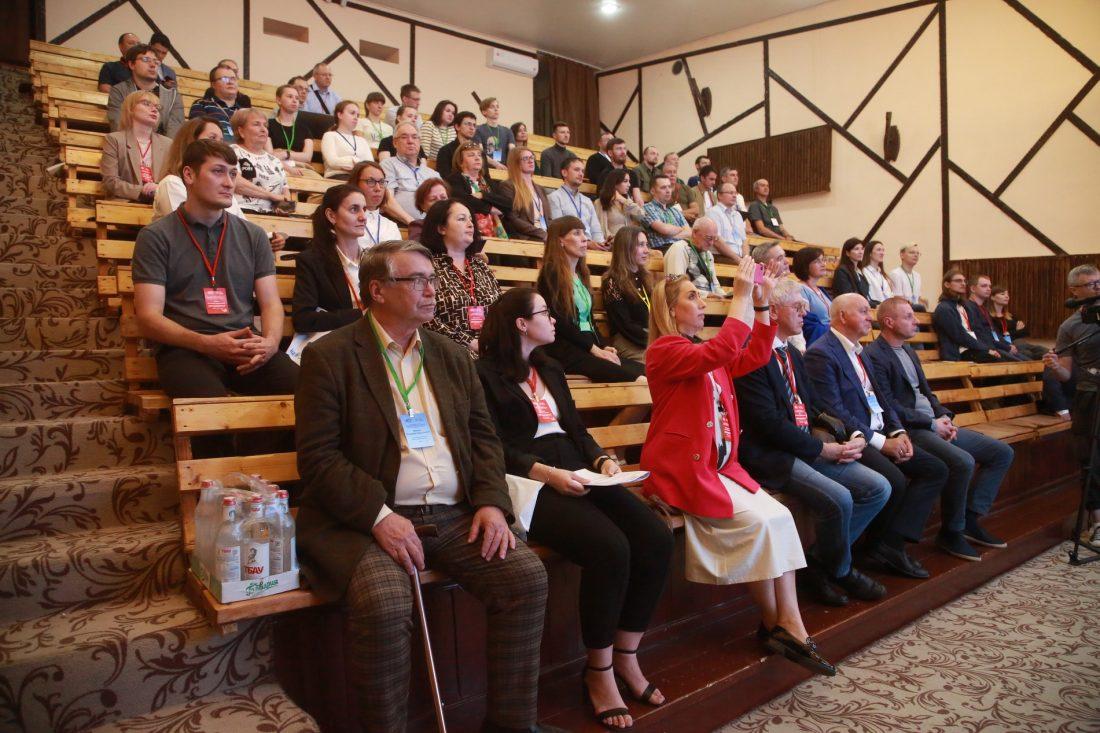«Tomorrow» of hydrogen energy is discussed by Russian scientists in the Elbrus UNK KBGU

More than 90 Russian scientists gathered the First All-Russian Seminar «Electrochemistry in Distributed and Nuclear Energy», which is taking place these days at the Elbrus Educational and Scientific Complex of the Kabardino-Balkarian State University named after H.M. Berbekov (KBGU).
The main topics of discussion were the use of hydrogen energy and the development of new technologies in nuclear energy. The organizers of the scientific and practical symposium — scientists from KBSU and the Institute of High-Temperature Electrochemistry of the Ural Branch of the Russian Academy of Sciences — included in the program about 70 scientific reports and lectures on the most important topical problems of electrochemistry and hydrogen energy.
Within 4 days (September 18-22) at the plenary session, as well as at the sections «Functional materials and electrochemical devices for distributed energy», «Hydrogen energy: issues and solutions», «Nuclear energy: applied aspects and spent fuel reprocessing», “Functional materials and electrochemical devices for distributed energy”, “Nuclear energy: applied aspects and spent fuel reprocessing”, “Molten salt processes and devices: electrolysis and refining”, “Molten salt processes and devices: electrolysis and refining”, “ Nuclear Energy: Applied Aspects and Spent Fuel Reprocessing”, there will be lectures, reports and oral presentations from leading industry scientists.
“Issues that will be considered at the seminar “Electrochemistry in distributed and nuclear energy” relate to materials science areas for hydrogen energy, and materials and processes necessary for the development of new technologies in nuclear energy will also be considered. These are issues of increasing the efficiency of electrochemical devices for hydrogen production, as well as the use of hydrogen. The questions of creating new materials and their properties that will be used in new technologies for reprocessing spent nuclear fuel, I mean molten-salt reactors, will also be considered here. Taking into account the online format, 90 scientists from all over Russia take part in the seminar,” — said Yury Zaikov, scientific director of the Institute of High-Temperature Electrochemistry of the Ural Branch of the Russian Academy of Sciences.
The participants of the seminar were greeted by acting. Rector of KBSU Yuri Altudov, who stressed that the meeting is significant not only from a scientific point of view.
“Today we have heard the words “we”, “our science”, “our country” many times — these are unifying words that are the basis of our meeting, the basis of science, the basis of our further achievements. People of different ages are present here, and if before the pandemic there were not so many young people at conferences, now more and more young people are interested in science. This decade is the Decade of Science, and it is necessary to work developing our country so that in the future we only feel more comfortable,” — Altudov said.
Aleksey Dub, First Deputy Director General of JSC Science and Innovations of the State Corporation Rosatom, emphasized that the seminar is attractive for specialists because it is of an applied nature.
“The seminar addresses the issues of hydrogen energy and materials, and both of these areas are important to me, namely in terms of the prospects for their implementation in the corresponding products of the state corporation. We are very interested in composite materials for various applications and, above all, for structural applications, because composite materials have unique properties (low corrosiveness in some environments) that we are interested in; it is a combination of high strength and thermal conductivity with a relatively low weight at the same time,” he explained. The representative of Rosatom emphasized that hydrogen energy is also important for the state corporation, «because we determine our programs and our attitude towards hydrogen energy.»
The combination of such a range of specialists and organizations is an additional verification of the relevant decisions, he noted. “I hope the seminar will help to make sure that the goals, tasks and plans we have chosen in the state corporation have solid grounds for their implementation, on the one hand, and on the other hand, that we have the opportunity to correct them and get even more effective solutions, which are very important for us. regular meetings,” — Dub summed up.
At the end of the scientific work at the seminar, an interesting excursion program was prepared. Also, all participants will receive certificates and collections of scientific articles and methodological materials of the symposium.

